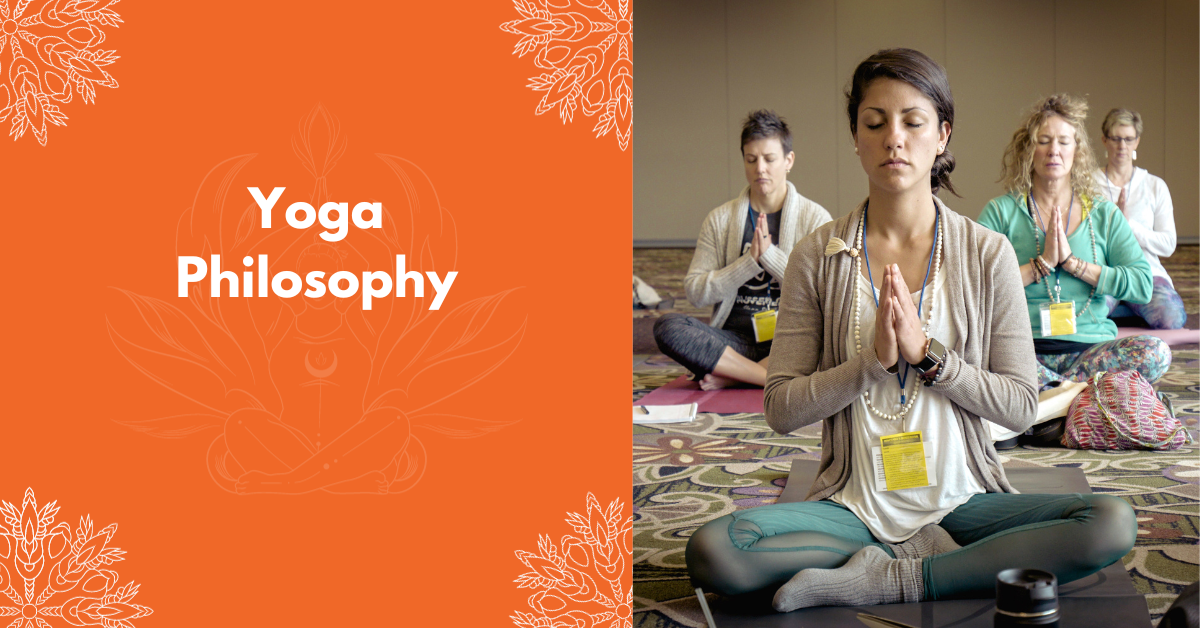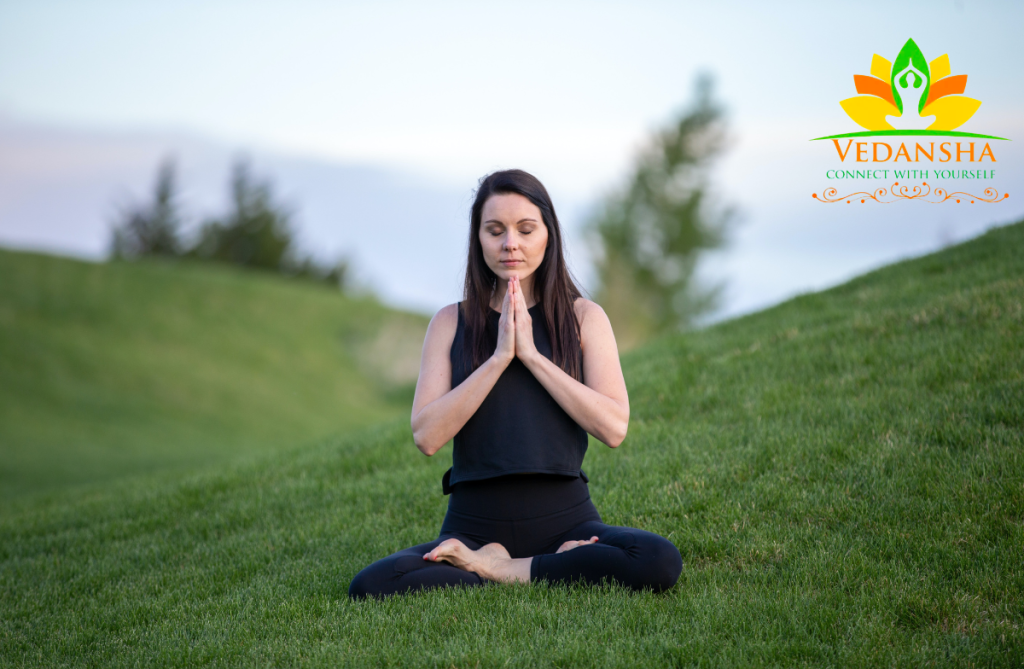
Yoga philosophy: The Ultimate guide
“Exploring the Wisdom of Yoga Philosophy: Unveiling the Ancient Path to Inner Harmony and Well-being””Exploring the Wisdom of Yoga Philosophy: Unveiling the Ancient Path to Inner Harmony and Well-being”
In the world of yoga, philosophy forms the very foundation of this ancient practice. Delving into the depths of yoga philosophy is not just about understanding a set of principles; it’s about embarking on a profound journey towards self-discovery and spiritual awakening. In this article, we will explore the intricate web of yoga philosophy, its key components, and how it can transform your life.
The Essence of Yoga Philosophy

Yoga: A Holistic Lifestyle
Yoga is more than just a physical practice; it’s a holistic lifestyle that encompasses the body, mind, and soul. The core philosophy of yoga is rooted in the belief that these three aspects are interconnected. This philosophy is encapsulated in the word “yoga” itself, which means union. Yoga aims to unite these three elements, fostering harmony and balance in one’s life.
The Eight Limbs of Yoga
Central to yoga philosophy are the Eight Limbs of Yoga, as described in Patanjali’s Yoga Sutras. These limbs are a roadmap for leading a meaningful and purposeful life. They encompass principles for ethical living, self-discipline, physical postures, breath control, concentration, and meditation. By following these limbs, one can attain spiritual enlightenment and self-realization.
The Role of Meditation
Dhyana: The Art of Meditation
Meditation is a cornerstone of yoga philosophy. It is the practice of quieting the mind and delving within. Dhyana, one of the Eight Limbs, focuses on meditation. It encourages individuals to explore their inner consciousness, leading to a deeper understanding of oneself and the world around them.
The Path to Self-Realization
Samadhi: The Ultimate Goal
The pinnacle of yoga philosophy is Samadhi. This is the state of pure bliss and oneness with the universe. Achieving Samadhi is the ultimate goal of yoga. It involves transcending the ego, attachments, and desires, and becoming one with the divine. Samadhi is a state of profound inner peace, where one experiences their true self.
The Power of Asanas
Yoga Poses for Physical and Mental Well-being
Asanas, or yoga poses, are an integral part of yoga philosophy. These postures serve a dual purpose – they promote physical health and mental well-being. The various yoga poses are designed to balance the body’s energy, improve flexibility, and enhance strength. Incorporating asanas into your daily routine can lead to a healthier, more vibrant life.
The Influence of Yoga Philosophy on Daily Life

Mindfulness and Self-Awareness
Yoga philosophy encourages mindfulness and self-awareness. By being present in the moment and understanding one’s thoughts and actions, individuals can lead more meaningful lives. This level of awareness enables better decision-making, improved relationships, and a deeper sense of purpose.
The Connection Between Yoga Philosophy and Modern Science
Yoga’s Influence on Health and Wellness
In recent years, there has been a growing interest in the connection between yoga philosophy and modern science. Research has shown that yoga can have a positive impact on physical and mental health. From stress reduction to improved cardiovascular health, the benefits of yoga are backed by scientific evidence.
Ancient Wisdom for Modern Life
Yoga philosophy is an ancient discipline with timeless wisdom that is highly relevant in today’s fast-paced, modern world. It offers practical tools to deal with stress, anxiety, and the challenges of daily life. By addressing these contemporary issues, you can further enhance the relevancy of your content.
The Importance of Breath Control (Pranayama)

Unlocking the Power of Prana
Pranayama, the regulation of breath, plays a vital role in yoga philosophy. It’s a tool for controlling the life force energy, Prana, within us. This practice can boost physical health, improve mental clarity, and reduce stress. Exploring the intricacies of Pranayama and its benefits in a separate section can provide more in-depth information to your readers.
The Ethics of Yoga (Yamas and Niyamas)
Guidelines for Ethical Living
Yoga philosophy provides a clear framework for ethical living through the Yamas and Niyamas. The Yamas are moral principles that guide our interactions with the external world, while the Niyamas focus on inner discipline and self-care. By delving into these guidelines, readers can learn how to lead a life filled with compassion, truth, and self-improvement.
Yoga Philosophy in Practice

Incorporating Yoga into Your Daily Routine
One way to ensure the success of your article is by offering practical tips and guidance on how to integrate yoga philosophy into one’s daily life. This could include advice on starting a regular yoga practice, finding a qualified yoga instructor, and understanding the importance of consistency in achieving the desired results.
The Role of Yoga Retreats and Workshops
Immersive Experiences for Deepening Understanding
Yoga retreats and workshops offer immersive experiences in which individuals can dive deeper into yoga philosophy. Discussing the advantages of such experiences and providing information on reputable retreats and workshops can attract readers who are looking for a more profound connection to yoga philosophy.
Yoga Philosophy in Different Traditions

Diversity of Yoga Schools
Yoga philosophy is not monolithic; it varies across different traditions and schools. Explore the distinctions between, for example, Hatha, Vinyasa, Ashtanga, and Kundalini yoga. By providing insight into these various schools, your content can cater to a broader audience with diverse interests.
The Future of Yoga Philosophy
Adapting to Contemporary Needs
Incorporate a forward-looking section to discuss how yoga philosophy is evolving to meet the demands of the modern world. For instance, you can delve into how online yoga classes, yoga apps, and scientific studies continue to shape the landscape of yoga philosophy.
Conclusion
Yoga philosophy is a profound and timeless practice that offers a path to self-discovery and spiritual growth. By understanding the Eight Limbs of Yoga, embracing meditation, and working towards self-realization, individuals can lead more fulfilling lives. The principles of yoga philosophy are not just ancient wisdom but also a guide to navigating the complexities of the modern world. Through the practice of yoga, one can unlock their full potential and experience a life filled with harmony, balance, and inner peace.
FAQ
What is the core philosophy of yoga?
Answer: The core philosophy of yoga revolves around the concept of union or harmony. Yoga aims to unite the body, mind, and soul, fostering balance and self-realization. It provides a holistic approach to life, emphasizing physical and mental well-being as interconnected elements.
What are the Eight Limbs of Yoga, and why are they significant?
Answer: The Eight Limbs of Yoga, as described in Patanjali’s Yoga Sutras, provide a structured path towards spiritual growth and self-realization. These limbs encompass ethical principles, self-discipline, physical postures, breath control, concentration, and meditation. They are significant as they offer a comprehensive guide to living a meaningful and purposeful life.
How can meditation benefit one’s understanding of yoga philosophy?
Answer: Meditation, a key component of yoga philosophy, allows individuals to explore their inner consciousness and develop a deeper understanding of themselves and the world around them. It promotes self-awareness, reduces stress, and helps in achieving the ultimate goal of Samadhi, a state of profound inner peace.
What is the significance of ethical principles in yoga philosophy (Yamas and Niyamas)?
Answer: The Yamas and Niyamas are ethical guidelines that promote moral and virtuous living. The Yamas focus on interactions with the external world, emphasizing qualities such as truthfulness, non-violence, and non-possessiveness. The Niyamas, on the other hand, concentrate on inner discipline, encouraging practices like self-study and contentment. These principles are essential as they guide individuals towards a life filled with compassion, integrity, and self-improvement.
How can one incorporate yoga philosophy into their daily life?
Answer: To incorporate yoga philosophy into daily life, one can start by establishing a regular yoga practice that includes physical postures (asanas), meditation, and breath control (pranayama). Additionally, mindfulness and self-awareness should be cultivated to make conscious choices and lead a more meaningful life. It’s also beneficial to attend yoga workshops, retreats, and classes to deepen one’s understanding and practice.

